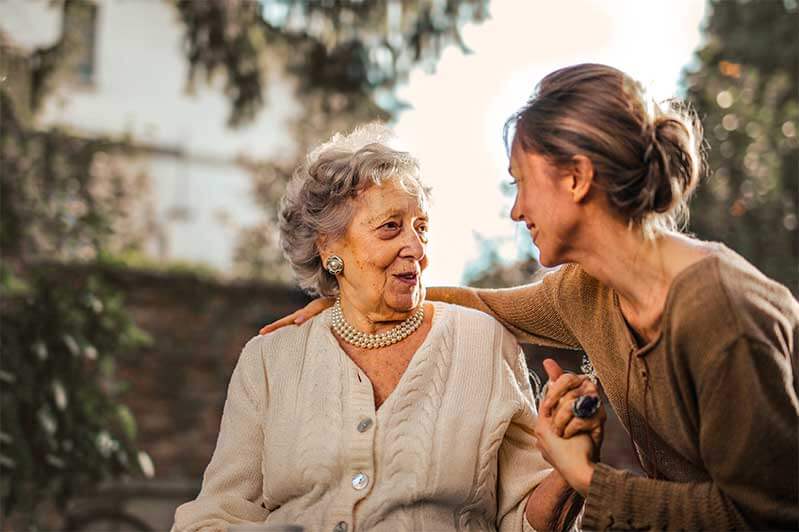African American Month & Health

African American Month & Health
February is African-American (Black) history month. African Americans have a long and unique history in the America’s going back at least to the 1500’s, over 100 years before the first slaves arrived in Jamestown.
This is the month to reflect on the history, stories, and contributions of the African American experience in America. Something that isn’t talked about to often (which I want to in this article) is the health disparity of the African American population compared to other groups inside the US.
There is a glaring difference in health conditions between African Americans and the rest of North America. The reasoning behind this is found in hard to discuss topics such as unintentional and conditioned cultural norms, environmental circumstances, structural placements, historical systemic medical experimentation and neglect, which has perpetuated fear of hospitals. There are also the self inflicted issues by bad life style choices. All of these reasons excluding the personal life choices can be found in a long history of outside factors creating a reality and then a norm (click on each underline for a brief history).
Each of those topics require a plethora of books. This article’s intention is to highlight the importance of the medical reality and not to address the history of each factors lineage.
Usually, articles are written listing the problem and ending with prevention and/or solutions. Today I am going in reverse and am going to list the prevention and/or solutions first (for those things that an individual has control over or can learn to get control over).
Mind, Body, and Soul is at the heart of all-around health objectives from various schools of thought in the health realm. For good reason. Going back millenniums, philosophers (such as Hippocrates) and doctors noticed that certain actions resulted in better health and even reduced disease states. Also, discovered was that lifestyle could be a causation in deteriorating conditions.
Diet. Exercise. Rest. Community.
Those four things (perhaps) in that order are highly important in maintaining a healthy mind, body and soul.
Diet
A proper nutrition (which I will discuss in March) is the fuel for our body and mind. Your body and mind’s out put is directly related to what you decide to eat. The brain makes up 1/50th of our body mass but consumes 1/5th of the calories we burn for energy. Have you ever worked out or exercised but didn’t see the physical improvements you were hoping for? Well, more than likely you neglected your daily nutrition plan. Now, lets be clear. A diet, when we are talking about the extent of a lifetime ends up being nothing more than the average of your food choices. Did you consume more “good” or “bad” quality foods?
A diet in the longevity of a life span is not to be conflated with a temporary or seasonal change of eating choices (known as diets) that flip and flop from this and that fad. A good plan for each plate of food you eat should try to be divided between good carbs, protein and healthy fats.
- Carbs (fruit and veggies) 45-65%
- Protein 10-35%
- Fats 20-35%
The percentages difference covers such things as how big and tall someone is, male or female, and daily physical exertion differences. Someone handling a jack hammer throughout the day is going to require bigger quantities than an office worker.
Following a nutritiously sound diet is immeasurable. It leads to better health, better mood, and better energy.
Exercise
Once we have a good grasp on our diet we will notice improvements in our performance in physical activity. When people hear that word exercise they tend to get this imagery of Arnold Schwarzenegger or an olympian gymnast. If so, lets scratch that out of our mind. The point of exercise is to have some level of physical exertion/resistance and improves oxygenation of your blood cells. Exercise also has such benefits as:
- Improving mood
- Weight loss
- Build muscle and bone density
- Increase energy
- Reduce risk of disease
- Youthful looking skin
- Brain health and memory
- Relaxation and sleep
- Reduce pain
- Improve on sex performance
Exercising all depends on your level of physical capabilities. So, if you are still mobile to some extent get with your physical therapist, doctor or other certified health consultant and learn what you are capable of doing. Don’t think of jumping in the pool and doing laps or lifting weights. There are many forms of exercise from a leisurely walk, to yoga, tai chi, isolation holds, or flexing for periods of times. Body weight movements, such as a push up or an air squat can be performed. Don’t rush into it. Don’t over exert yourself. Progress will come as you continue. And ensure you get proper rest and recovery. Rest and recovery from your exercise can begin with focused deep breathing.
Rest
Beyond focused breathing as a method in your post exercise recovery to lower your heart rate, you shouldn’t neglect proper rest through sleep. Getting proper nightly sleep is crucial to all aspects of your health. Sleep affects energy levels, mood, intellectual function, growth and stress hormones. It also connected to the immune system, appetite, breathing, blood pressure, and cardiovascular health. Adults need as much as 7-8 hours of sleep a night. In order to increase your chances of quality sleep you should monitor/limit your caffeine intake. When you are trying to go to sleep turn off light sources to include things like laptops, tv’s, and phones. Many people struggle with sleep issues from insomnia, to sleep apnea to illness’s from medications that alter their sleep. These things should be addressed with your physician to see if it can be improved.
Community
We all enjoy a good laugh. Almost everyone who smiles at someone will garner a smile in return, its contagious. In the age of social media and online social groups, and bubbles, it may be hard for people to actually gather and have face to face get togethers. But, the human connection in real-time meet and greets are actually beneficial to the human psyche. Abraham Maslow, creator of Maslow’s Hierarchy of needs has social connections listed as number three in his rank of human requirements after physiological and safety needs for survival. Those who maintain healthy relationships have been found to enjoy healthier and longer lives by up to 50%. It improves your blood pressure, lowers body mass index, decreases chances of heart disease. On the other hand people with poor social connections have higher rates of cancer, atherosclerosis, and even slower wound healing.
Did you recognize that a lot of the same health issues (high blood pressure, heart disease) are possible to rise from each of those four individual subsets? Well, imagine neglecting multiple parts of your all around health and the likelihood of a health condition arising becomes a simple conclusion. I don’t want to put off as if this is an easy fix. Changing your environment, or moving to a new location isn’t always plausible. But what can be fixed, changed, or adjusted? Is it possible to reduce your red meat intake, or decrease the amount of fried foods? Or set a goal of walking for 30 minutes. How many hours a night do you sleep? Is it possible to get 7-8 hours? Are you able to sit down and talk with a loved one, friend or neighbor?
In America the death rate for African Americans is generally higher than whites for heart diseases, stroke, cancer, asthma, influenza and pneumonia, diabetes, HIV/AIDS, and homicide. There are a few health conditions that Hispanic and Asian Americans experience on par, but in general African American’s lead in morbidity stats. African American’s tend to get diabetes, high blood pressure, and suffer strokes at earlier ages than their white counterparts.

“the top three causes and seven of the 10 leading causes of death are the same for non-Hispanic blacks and non-Hispanic whites (the largest racial/ethnic population in the United States), the risk factors and incidence, morbidity, and mortality rates for these diseases and injuries often are greater among blacks than whites.”
– Office of Minority Health, Office of the Director, CDC.
What the “Office of Minority Health” is saying is that while different racial groups all acquire the same disease conditions the numbers per populous in respected racial groups are found to be higher in the African American community.
The key in this quest of healthy living is to focus on one thing at a time. Pick a section in your life that you know needs improvement and work on that. It won’t be an overnight transformation. Most new habits take about 67 consistent days of practice to form. Once you have a grasp on one thing attempt to add another, and so on. It’s a journey. Your life is liken unto fertile soil, what you put into it, is what it gives back unto you. Mind. Body. And Soul!
Disclaimer: This article is intended as a friendly reminder with recommendations. It is not medical advice, direction or prescription of any sort. Please refer to professional services for any health-related questions, concerns and relief.

Contact us
Reach Us
Our dedication to caring for our clients is more than just a job. “It’s a way of life.” Let us help you maintain your independence today!
4751 Best Road Ste 400B College Park GA, 30337
Phone: (770) 808 6070
Fax: (770) 679 8593






